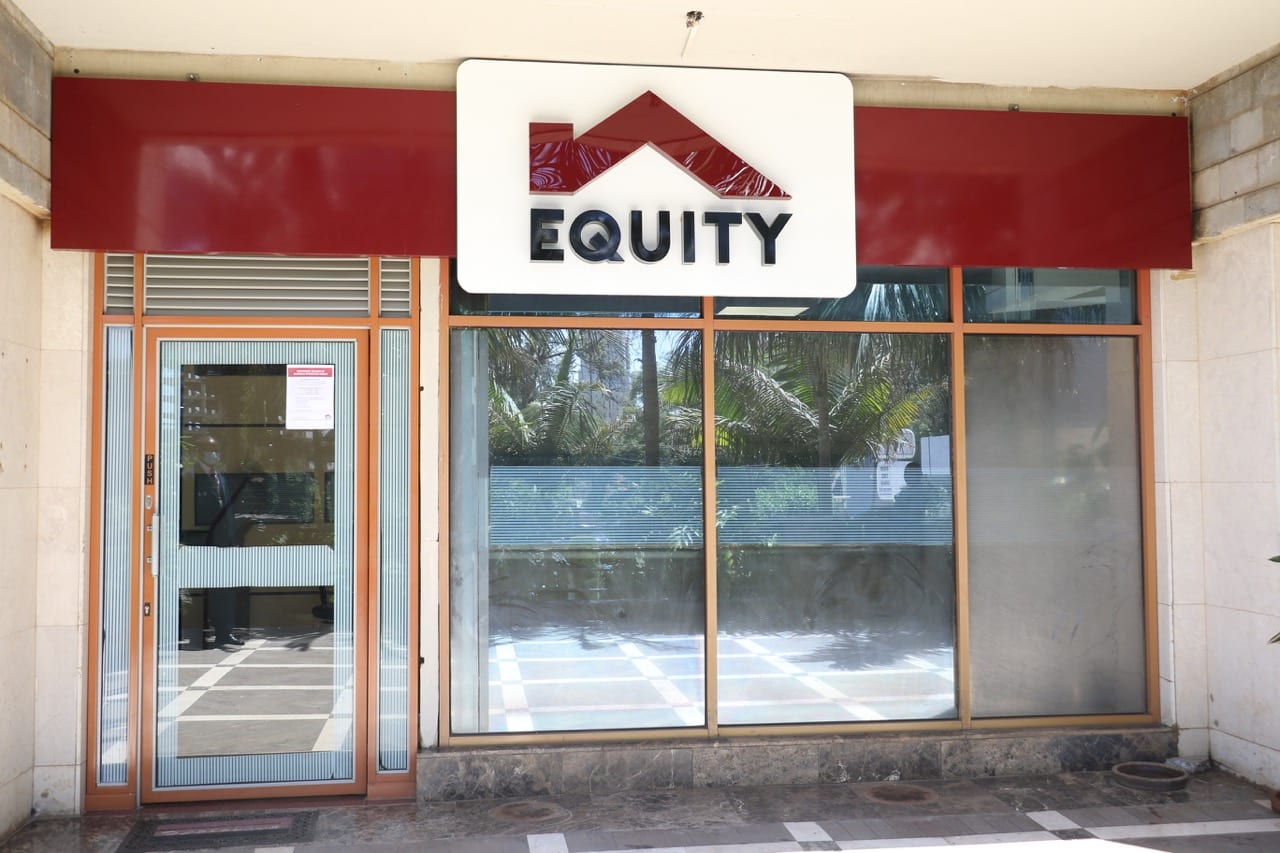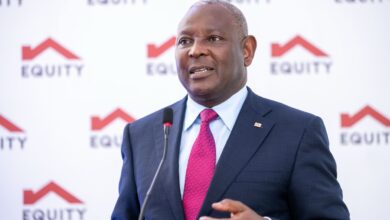
Equity Group Holdings Plc (EGH), one of Africa’s most prominent financial institutions, has reported a strong performance for the first half of 2024, despite operating in a challenging macroeconomic environment marked by high interest rates and volatile exchange rates across its key markets. The Group posted a 12% increase in profit after tax, amounting to KES 29.6 billion, and continued to grow its balance sheet, which expanded by 6% to KES 1.75 trillion. Notably, nearly half of the Group’s assets and over 50% of its profit before tax came from its regional subsidiaries, underscoring the success of its diversification strategy.
Key Financial Highlights from H1 2024:
- Total Assets: Grew by 6% to KES 1.75 trillion, with regional subsidiaries contributing 49.7%.
- Deposits: Increased by 11% to KES 1.3 trillion, driven by a customer base of 20.7 million.
- Liquidity Position: Cash and cash equivalents surged by 55% to KES 341 billion, reinforcing the Group’s liquidity at 57%.
- Profit After Tax: Rose by 12% year-on-year to KES 29.6 billion, driven by strong growth in both interest and non-interest income.
- Interest Income: Jumped by 22% to KES 84.8 billion, while interest expense grew by 30% to KES 30.4 billion due to higher returns to customers.
- Non-Funded Income: Increased by KES 5 billion, contributing to a total income growth of 16%, reaching KES 95.1 billion.
- Shareholders’ Funds: Expanded by 13% to KES 220 billion, providing a strong foundation for future growth.
- Loan Loss Provisions: Increased by 35% to KES 8.5 billion, reflecting a prudent approach in a volatile environment.
Regional Expansion and Product Diversification
Equity Group’s regional expansion and product diversification strategies continue to bear fruit. The Group’s operations outside Kenya now account for 47% of total loans (up from 44% in 2023) and contribute 51% of profit after tax. The Democratic Republic of Congo has emerged as a significant growth market, alongside the successful integration of Cogebanque in Rwanda.
In contrast, the contribution from the Kenyan banking subsidiary declined slightly, with its share of the Group’s revenue falling to 43% from 46% in the previous period. This shift highlights the increasing importance of the Group’s regional operations, which have become key drivers of growth.
Equity Group Expansion into Insurance
To further diversify its product offerings, Equity Group has ventured into the insurance sector, recently obtaining a general insurance license in addition to its existing life assurance license. This move allows the Group to offer a comprehensive range of financial services, including insurance products designed to meet the needs of corporate, Small and Medium Enterprises (SME), and retail customers. The Group aims to leverage its extensive branch network, which includes over 1.1 million agents and merchants, to distribute insurance products effectively across all customer segments.
As of June 2024, Equity Group had issued over 12 million life policies and served 1.5 million unique customers with life assurance and pension products. The Group’s insurance offering is positioned as part of a broader strategy to enhance customer resilience by protecting life, health, and wealth.
Defensive Strategy and Prudent Loan Management
In response to the global macroeconomic uncertainties, Equity Group has adopted a defensive and conservative approach to loan management. The Group increased its loan loss provisions by 35% to KES 8.5 billion, maintaining a Non-Performing Loans coverage ratio of 70%, which is significantly below the industry average of 16.3%. The Non-Performing Loans ratio itself stood at 12.9%, reflecting the Group’s cautious lending practices.
Capital Adequacy and Financial Strength
The Group’s capital buffers remain robust, with a core capital ratio of 15.8% and a total capital ratio of 18.4%, well above the regulatory requirements of 10.5% and 14.5%, respectively. Shareholders’ funds grew by 13% to KES 220 billion, providing a solid foundation for the Group’s continued expansion and ability to capitalize on market opportunities, such as the recent acquisition in Rwanda.
Digital Transformation and Technological Innovation
Digital transformation is at the heart of Equity Group’s business strategy. The Group’s “One Equity” initiative has successfully integrated its product offerings, enabling seamless cross-selling and bundling of financial services. Digital channels now dominate the Group’s transactions, accounting for 84% of all activities. Agency channels process 9%, while Automated Teller Machines (ATMs) and merchant acquiring channels each handle 2%. The Group’s branch network now processes only 3% of transactions, illustrating the significant shift towards digital and self-service channels.
This technological shift is not just about efficiency but also about enhancing customer experience and providing greater convenience. The Group’s commitment to digital innovation is further evidenced by its partnerships with global technology giants such as Microsoft and Mastercard. These collaborations aim to digitize 10 million customers under the Community Pass initiative, reinforcing Equity Group’s role as a leader in digital financial services in Africa.
Social Impact and Sustainability
Equity Group’s impact extends beyond financial services to include significant contributions to social development and sustainability. The Equity Leaders Program, for instance, recently awarded scholarships worth KES 2.8 billion to 113 scholars from Kenya, Rwanda, Uganda, and the Democratic Republic of Congo. These scholarships enable students to pursue higher education at prestigious global universities, with 13 students admitted to Ivy League institutions this year alone. Since its inception, the Equity Leaders Program has supported 970 scholars in attending global universities, including 204 who have studied at Ivy League schools.
In terms of sustainability, Equity Group continues to lead in climate finance, having extended over KES 26 billion in climate-related financing. The Group is set to release its third sustainability report, which will highlight its efforts to embed sustainability into its core business strategy. Equity Group is also an early adopter of the Taskforce for Nature Finance Disclosure in Africa, demonstrating its commitment to supporting nature restoration and environmental sustainability. To date, the Group has achieved the planting of 29.5 million trees, underscoring its leadership in climate action.
Table: Equity Group Key Financial Metrics (as of June 30, 2024):
| Metric | Value (KES) | Year-on-Year Growth |
|---|---|---|
| Total Assets | 1.75 trillion | +6% |
| Deposits | 1.3 trillion | +11% |
| Profit After Tax | 29.6 billion | +12% |
| Interest Income | 84.8 billion | +22% |
| Non-Funded Income | 95.1 billion | +16% |
| Loan Loss Provisions | 8.5 billion | +35% |
| Shareholders’ Funds | 220 billion | +13% |
| Non-Performing Loans Ratio | 12.9% | – |
| Core Capital Ratio | 15.8% | – |
| Total Capital Ratio | 18.4% | – |
| Liquidity Position | 341 billion | +55% |
Conclusion
Equity Group’s half-year performance in 2024 is a testament to its resilience and strategic foresight. The Group’s strong financial results, coupled with its continued expansion into new markets and product lines, position it well for future growth. Equity Group’s commitment to digital transformation, social impact, and sustainability further strengthens its leadership position in the African financial services sector. As the Group continues to navigate the complex global economic environment, it remains focused on delivering value to its shareholders, customers, and communities.






